|
“Death and life are in the power of the tongue, and those who love it will eat its fruit.” Proverbs 18:21. The definition of the word “communication” from Webster’s dictionary is: “to share or impart information.” I look at this word and see a whole lot more. Com = come and commune = to communicate intimately. Communication can be defined as people coming together intimately to share information of all kinds. Coming together or communing is a very personal act, requiring the openness of individuals to both share information as well as receive it. This is where the very act of communicating becomes challenging. We are diverse as individuals and have a multitude of ways of perceiving what is communicated, as well as varying ways of imparting our ideas and information. When we speak to another, we do not just simply use words. We use tone, inflection, and body language. Because of all this, we can relay information in a positive or a negative manner. Keeping this in mind, it is essential to be very intentional and aware of how and what we communicate at all times. Ephesians 4:24 is plain in its instruction: “Do not let any unwholesome talk come out of your mouths, but only what is helpful for building others up according to their needs, that it may benefit those who listen.” As Christians, we want to always strive to build up and encourage with our communication. I’ve found that for communication to be successful, there have to be some ground rules. This requires that we be intentional people of prayer who ask for wisdom and understanding. Praying also helps us to be reverent, respectful, and open. Colossians 4:6 tells us “Let your conversation be always full of grace, seasoned with salt, so that you may know how to answer everyone.” This is a tall order for mere humans, which is precisely why we need God working in and with us. Our words can be blessings or weapons in any of our relationships. God calls us to love Him and our neighbor as ourselves – to serve in humility and love. Our speech has to align with this, the greatest commandment. As Proverbs 12:18 says, “The words of the reckless pierce like swords, but the tongue of the wise brings healing.” What we say and how we deliver it reveals the spiritual battle we are engaged in. Our purpose in speaking should always be for the good of the recipient. There are so many things we wish to impart to others in our daily lives: instructions, encouragement, advice, exhortation, expressions of love, thanks, concern, correction. The list is endless. However, a quote attributed to St. Francis of Assisi sums up communication in a beautiful and profound way: “preach the Gospel always, and if necessary, use words.” What that means is that our goal should be to impart all that Jesus taught us through acts of love and mercy, and when we have exhausted our actions, then use words. I realize it is necessary to speak for many important reasons, but it must always be done in respect of the dignity of the recipient, aware that they are a child of God and always desiring the best for them. Since this is a challenging task, we must seek the help of the Holy Spirit and also holy people who can assist us in learning the best manner of speaking to others in all types of circumstances. It is not something we are just born with the ability to do. It comes with prayerful guidance and lots of practice. James 1:26 reminds us “Those who consider themselves religious and yet do not keep a tight rein on their tongues deceive themselves and their religion is worthless.” Another element of communication is discerning when it is appropriate to speak and when to remain silent. I don’t mean ignoring another or refusing to talk. I mean weighing what you ‘feel’ or ‘want’ to say versus what is ‘right’ and ‘necessary’ to impart. “The heart of the righteous weighs its answers, but the mouth of the wicked gushes evil,” Proverbs 15:28 continues. This requires each of us to spend a good amount of time in quiet prayer each day in order to be in an open disposition to receive wisdom and understanding about what to communicate. From there, we must pray for the grace to ‘commune’ with the recipient of our information in a loving and Godly manner. When we nurture a consistent prayer life with the Lord, we experience peace that guards our minds and hearts. Because of our woundedness and fallen nature, the world and the devil’s designs, we struggle in this area and need the guidance of the Holy Spirit to be communicators that build up, encourage, and love through our words. In our fractured world, when people are attacking each other on all fronts about every issue imaginable, we as Christians need to be conduits of peace when we communicate. Praying for the desire to express love in everything we do will benefit us when we communicate and when we are receiving communication from others. We must grow in self-control and patience so that our communication will be positive, even in the toughest conversations. As Christians working to build the Kingdom of God, we must allow the love of Christ to flow out of us in all our actions and in every word we utter. We can come together with others and share information in many beautiful ways. God gave us voices for this. Let us always be in deep communion with God who loved us into being and calls us to be relational in order to share His love and build His kingdom on earth! Let Psalm 141:3 be our daily prayer: “Set a guard over my mouth Lord, keep watch over the door of my lips.” To read more about charitable communication and evangelization, we invite you to read Choosing to Believe in Another’s Best Intentions or Communicating Like Chrysostom: Growing Your Skills in Speaking for the New Evangelization.
0 Comments
During my fifth year with D.C. United, the team brought in a nutrition specialist. The specialist gave his presentation and then looked toward a table in the middle of the locker room that held about 40 pill bottles of vitamins, supplements, mild pain relievers, gels, powders, and who knows what else. The nutritionist then walked over to the table, looked back to us, and said, “you know, if you just eat well you can throw all of these out. In fact, you’d be better off doing that.” He left the locker room five minutes later and never came back. For my first five years at DCU, I had been taking those vitamins and supplements at the recommendation of our strength and conditioning coaches and athletic trainers. Now a certified nutritionist deemed the whole thing a waste of time and had even said they could hinder our performance—I wondered what exactly to do. Who should I listen to? This memory has stayed with me because it matters a lot for an athlete what you do with your body. It matters how you train, eat, sleep, relax, and recover. You need to know what is helpful for your athletic development and what is unhelpful. I wanted to know if the pills and supplements helped me or hindered me. This all applies to athletic prudence in the natural realm. Prudence is the ability to judge rightly and act according to that knowledge. It is being able to think through things correctly and then make the right choice. Thus, athletic prudence is the ability to choose and act rightly in the realm of an athletic pursuit. We make decisions and then act based upon what we have concluded is actually helpful or unhelpful in relation to our goal. I would like to apply this same line of thinking to the virtue of prudence in the supernatural realm. We should be asking what is helpful or unhelpful in terms of our spiritual lives. Just like the nutritionist condemning our pill vault and making me wonder what was actually helpful for my soccer career, we should ask what in our lives helps or hinders us from going to God. In order for us to do this, of course, we must acknowledge that God is both our goal and a worthy (the most worthy!) goal at that. When I got to the height of my playing career I was devastatingly depressed for a very concentrated span of time (only several days). For months I pondered why I hit such a low point amidst more success than I had ever expected. Eventually, through the help of the Holy Spirit, I realized that God allowed me to feel the weight of my success without Him. It was an incredible grace—but also one that was difficult to really learn. Over time the truth that my soul was more important than my sport sunk in. I realized that much of what I had made my life about was, in the end, unhelpful for reaching the ultimate Goal who is God. I started applying my athletic thinking to my spiritual life. I started asking the right questions—is this helpful or unhelpful for my spiritual life? Should I be hanging out with this group of friends so much? Are my weekend habits really bringing joy to my life? Am I living as the person I want to be? Do I know who I want to be? These questions led—and continue to lead—me to Jesus, and I find myself needing to ask them again and again. Do the decisions I make help me become who I want to be? Or are my decisions hindering me from being that person? Athletic prudence helps athletes maximize their potential and use their God-given gifts to the best of their ability. This same principle can—and should—be applied to our spiritual lives. Are the decisions, actions, and principles that guide my life helpful? Are they leading me in a good direction? Prudence, says St. Thomas Aquinas, is the mother of the virtues. You cannot possess any virtue without the virtue of prudence because prudence is what enables us to recognize what is truly good (helpful) and then act according to that good. No athlete can become great apart from athletic prudence because athletic prudence enables the athlete to recognize and act upon what helps him or her become a good athlete. Far more important, however, is the realization that no person can become who they were created to be apart from supernatural prudence. It is not possible to follow Christ without first asking yourself what exactly it is you’re already following—what is it that shapes your decisions? It may be a desire for comfort, power, status, honor, wealth, success, popularity, or any number of things. But they all fall short. To be prudent you must know the end goal. You cannot attain the virtue of prudence in the whole of life without knowing that “it is Jesus in fact that you seek when you dream of happiness.”  Taylor Kemp is an instructor for the Denver Catholic Biblical School as part of the St. John Vianney Seminary Lay Division in the Archdiocese of Denver. He is a former professional soccer player, amassing over 100 appearances over six-years in Major League Soccer (MLS) for D.C. United, and playing for both the youth and full United States Men’s National Team. Taylor holds an MA in Theology from the Augustine Institute and BS in Business Management from the University of Maryland, College Park. "…we constantly find the tension between what man is and what he would like to be; between that which has been realized and that which remains to be accomplished. And it is patience which endures this tension." -Romano Guardini, Learning the Virtues That Lead You to God, 1963, 39. It turns out I really am not a huge fan of working out. After retiring from professional soccer in 2018, I’ve found it quite difficult to motivate myself to exercise when it is not formally baked into my day and when I am not paid to do it. I like being fit, but not the effort and time it requires. There is another reason, however, that I do not like working out, which is: I am impatient. Rather than committing to a regular schedule and planning the workouts to be manageable in difficulty, I go sporadically and push myself to a near death experience. Every. Single. Time. Behind my mindset is a deeply embedded impatience with the process of becoming fit. I want the result without the process—which is not possible. I want to become fit through the course of one rigorous workout and overstep the gradual process that it takes to become a fit person. In sports there is the common—and helpful—phrase of “trust the process.” What this means in the sporting world is that there is a necessary process of development that every athlete must go through in order to become good or great at his or her sport. It means that no one can go from ‘beginner’ to ‘expert’ without passing through ‘proficient’. There is a development in sport—and life—lodged in the school of gradual growth rather than immediate transformation. This frustrates us. All of us have some idea of who we would like to be, which is then immediately confronted by the reality of who we are. What enables us to endure this gap between idea and reality is what we call patience. Patience is needed where there is a desire not yet fulfilled. Case and point—my workout saga. I want to be fit (idea) but am not (reality) and therefore need patience to trust the gradual process of becoming fit. Patience is the virtue needed to shorten the gap and become who I want to be. There is another phrase in athletics related to “trust the process,” which is, “love the process.” What this means is that the best thing an athlete can do on the road to athletic development is not only trust that skill is only developed over time with effort, but that coming to enjoy that slow and gradual development is an extremely beneficial thing. The great athletes do this. There’s a reason you hear so many stories of the best athletes, from all different sports, being the first at practice and the last to leave. They fall in love with the process of becoming better. Apart from a commitment to the process there is no greatness. We must come to trust and love the “process” of being made holy. When I came into the Church in 2015, I was on fire. I wanted to: be a priest (while I was engaged to be married), learn to pray the Rosary, read St. Faustina’s diary and St. Teresa of Avila’s autobiography, make a pilgrimage to Fatima, know the 2000+ year history of the Church, and learn Biblical Greek (all of these are true and I tried to do all of them with the exception of become a priest). I wanted to become a saint overnight. However, I didn’t quite realize that’s typically not how God works. He knows—because He made us—that if He sanctified us too quickly, we’d be tempted into thinking we are responsible. So, just like every natural thing on earth, our spiritual lives develop organically over time, with much difficulty, slow progress, victories and defeats, deaths and resurrections, all for the purpose of maturity. Sanctification—growing in holiness—is a process just like anything else that is real in this life. Character does not suddenly emerge, wisdom is not haphazardly acquired, and virtue is not cheaply gained. All of the things that pertain to our nature—that is what makes a person a person—come by way of the long, winding, and arduous road. We must come to love the road. Guardini points out that—in our spiritual lives—it is often patience with ourselves that is most needed. We see who we would like to be and the faults of who we are. There is a saint in the distance but a sinner in the mirror. All of this is a call to patience—not despair. “Patience with oneself…is the foundation of all progress,” says Guardini. The gap between who we are and who we would like to be is not so much a condemnation on ourselves but an invitation from God to dream bigger, to trust in His grace, and to patiently enjoy the journey. “He who wishes to advance must always begin again,” Guardini continues, and this takes strength. It is easy to float through life without ever attempting the effort necessary to gradually grow, or the effort to begin again, or the effort to examine oneself, or the effort to admit you desire more. The virtue of patience requires strength—an interior strength that can withstand the assault of failure on our ego. Strength to call things as they are. For “only the strong man can exercise living patience, can take upon himself again and again the things that are; only he can always begin anew.” This is a living patience—one capable of enduring “the process” with joy trusting in the direction of one’s life. Jesus, may we all trust in your grace over our efforts and patiently trust the process that is your grace working in us for our sanctification. Help us to learn to be content where we are, focus on what is in front of us, and be satisfied with small steps, realizing that small steps are a big deal. May we be granted the strength to endure our shortcomings in all things, but especially our spiritual lives. May we look to your goodness, mercy, and transformative love and trust that you are leading us—slowly, gently, and for our own good—exactly where we are meant to go.
1. Have Trust in the Lord: In every situation, Pallotti sought the will of God. Any difficult situation should not discourage us to doubt the goodness of God. That is why when Count Antonio Maria Plebani (who was staying in the region of Marche), wrote with a heavy heart about the safety of his son who was studying in Rome, Pallotti responded saying: “Let us seek God. Let us seek Him always and in all the things. And we will find Him and in Him we will all be saved.” It was the time of the cholera epidemic. The suffering was visible for everyone to see. People - the saints and the ordinary, the churchmen and the lay people – died in large numbers. Pallotti’s close acquaintances – his father, his confessor, his friends, and associates - died during the epidemic. Pallotti did not lose heart or faith. He held himself like a strong tree with a firm foundation that fails to bow down to the strong wind of suffering. The situation is not different today. There is suffering everywhere. The invisible virus seems to be all-powerful. People, even people we know, suffer and die. We especially remember our confrere Fr. Alberto Fernandez Merayo, SAC (Heart of Jesus Province) who died of the deadly Coronavirus on April 7th, 2020. Some of our members in Poland (Oltarzew) have tested positive for the virus. These incidents can shake the foundations of our faith. God seems to be silent or absent. Our prayers seem to fall on deaf ears. It is the same for lay people. People look for God and they cannot seem to find Him! When they seek answers from us, the clergy, it is difficult to try and have answers for them. In spite of everything, it is very necessary that we, especially the priests and religious, stand as solid believers believing in the goodness of the Lord. In the time of Pallotti, there was the exemplary Pope Gregory XVI. Today we have Pope Francis doing the same. He sends out the message of a pastor who is truly concerned for the faithful and who continues to battle for them with his prayers. His actions have indeed strengthened the Catholic faithful all over the world. A man of God standing firm in faith—even in the most difficult times—is the most powerful symbol. Pallotti was one such symbol for the people who sought his advice in the most difficult times of the cholera epidemic. 2. ‘Do your Duties’: Our first necessary act is to be faithful and to stand firm in our beliefs. Faith alone does not suffice. “Faith without works is dead” writes the Apostle James (Jas 2:14-17). In a letter written to Giovanni Merchetti, a married lay person and a collaborator of Pallotti, we find the following advice: “it is better to attend to one’s proper duties [in the time of the epidemic].” Pallotti seems to be a believer in the battle cry: ‘Stop whining. Start working.’ Every person is supposed to do his or her duty in all situations, especially in the difficult times. The fear of sickness can limit us with inaction. Life under lockdown can also eventually result in lethargy. However, we should not allow our spirit to be burdened. Life under lockdown amidst the sickness should not be an excuse. We are supposed to be doing our duties to the best of our ability with the limits in place. In this regard, some great examples in these times are medical doctors, selfless nurses, the numerous pharmacists, generous healthcare workers, the committed members of the staff in hospitals, the police force, the proprietors of various shops selling the necessary food, the unknown truck drivers, the service minded priests and the other Church personnel. They were acknowledged by our beloved Pope Francis when he delivered the extraordinary blessings ‘To the City and to the World’ (Urbi et Orbi) on March 27th, 2020. The world will move on and there will be hope if everyone does his or her duty. Pallotti was very much aware of this simple but a significant fact. Because of Pallotti’s hope, one of his advices for the time of epidemic was ‘to do one’s duties.’ 3. Acts of Mercy: The next area in which Pallotti directed his actions in difficult times like the cholera epidemic was to be sensitive to the needs of his neighbors. To be charitable is good, and to be charitable in the time of epidemic is better. It is best when the beneficiary can in no way repay you. Pallotti was an exemplary figure in that sense. He engaged both in the Spiritual and Corporal Works of Mercy. Spiritual Works of Mercy: As the epidemic was ravaging Rome and wreaking havoc on the physical and spiritual lives of people, Pallotti wasted no opportunity to restore and strengthen the faith of the people. To the people who sought his counsel, he reassured them that God was still in control. It was praiseworthy that people sought the will of God in everything, including in the rough times of the epidemic. To the Apostolic Secretary in Vienna, who was very anxious for his life, Pallotti assured him that he would come out of the scourge untouched. Later, when he was proved right, Pallotti wrote to the secretary to ask for pardon and forgiveness from the Lord for the moments he was doubtful and weak in his faith. That was Pallotti’s way of counseling the doubtful and strengthening the feeble minded. The people who received the instructions of Pallotti were struck by the certainty with which he pronounced his teachings. Pallotti was also on the forefront of praying for the suffering people. When the Church organized a novena in honor of Our Lady and when it decided on a barefoot procession with the icon of the Madonna Salus Populi Romani, Pallotti plunged himself completely into prayerful ministries. For instance, Pallotti organized a Triduum in the Church of the Holy Spirit of the Neapolitans with a special intention to procure the necessary graces for the people infected with cholera. On another occasion, for the votive procession organized by the Church, Pallotti tried to get as many clergy as possible to participate in the procession. That was Pallotti’s service through prayer. Pallotti also spent a lot of time in the confessional hearing the sins of the faithful, and he encouraged his fellow clergy to do the same. In the extraordinary time of the epidemic, Pallotti requested the ministerial faculties for reserved sins for his collaborators (Frs. Melia and Michettoni). That was the comforting ministry of Pallotti in the time of the epidemic. Corporal Acts of Mercy: Pallotti also had the foresight to know that the spread of the epidemic would cause many people to lose their jobs and cause financial stress on many families paying for necessities and medical expenses. This would eventually result in a great increase in the number of the poor. Pallotti had an innovative idea to help such people in need. He placed a small box in the Church of the Holy Spirit of the Neapolitans (where Pallotti was the Rector). It was a box in which people in need could drop a piece of paper with their names, surnames, the place of their residence, their parish and their particular pressing need. Later the members of the Union were sent two by two with the relief materials to the homes of the people in need. Even before the arrival of the epidemic in Rome, when cholera was already present in the port city of Naples, Pallotti had sent bread to the affected people there. Thus, we learn that Pallotti fed the hungry when they most needed food. Besides carrying food for the needy, Pallotti and the members of the Union also attended to their other needs. They carried clothing to whoever lacked and asked for it (clothing the naked). They distributed lemons, which were thought to be a powerful medicine against the cholera outbreak, to the sickly. Pallotti asked his collaborators to assist the sick in their suffering. Additionally, Pallotti was seen on many occasions walking behind a hearse for the dead with his surplice and stole (burying the dead). Today, we are called to emulate the example of St. Vincent Pallotti. If an act of charity is possible, it should be done. Everyone is called to respond to the call of charity. There is no excuse for anyone. If a person is old or sick in bed, he or she can certainly pray for all of suffering humanity and they can offer his or her suffering as mortification for the world’s sins. If a person is young and active, he or she should participate in as many of the works of mercy as possible. A priest can very well say votive masses for the end of the epidemic. A religious or lay associate can dedicate him or herself to pray for the sick and the suffering and for the medical professionals who fight the deadly virus. The priests and religious are to stay with the flock -- if and when possible, they should be easily available to assist the sick and the dying. Fr. Giuseppe Berardelli (72), a priest from the Diocese of Bergamo, is a great example of Christian service and witness. He gave up his ventilator so that a young patient could recover. Many other priests and religious have served the sick and the dying and eventually fell victim to the virus. The Church and its dedicated personnel have been at the forefront caring for the needs of the people. If Pallotti were alive, he would be walking around in the hospital wards with the necessary protective equipment assisting the sick and the dying. He also would have encouraged the members of the Union to do the same. If such action is not possible (owing to the nature of the disease and the lack of enough Personal Protective Equipment), the other acts of mercy (corporal acts of mercy) are very much feasible. There are hungry people and abandoned families around us. We need to have compassionate eyes to look at them and listen to their needs to then do what is possible. Some might need immediate nourishment; some might require medicine; some might ask for another form of help. We need to look around and recognize people’s needs and respond. Pallotti responded. As his followers, we need to walk the same path. As a summation, I would say that if St. Vincent Pallotti were alive today, seeing the ravages of the current pandemic, his exhortation for his followers would have been something in the line of the following: “Do not worry. Pray and have trust in the Lord. Do your duties. And do not forget the acts of mercy.” To learn more about St. Vincent Pallotti, please click here. For more resources on the COVID-19 pandemic, please click here. A month ago, I thought I would be balancing returning back from a service immersion trip and student leadership interviews. Today I sit in my makeshift home office preparing for my next Zoom call, trying to keep in check my own anxieties while still ministering to my students. To be honest, the first week was not easy, and I have still not mastered ministry from home and social distancing. As the days continue, I have progressively realized my need to change my mindset of survival to finding peace, stability, and hope. I went to Thomas Merton and St. Teresa of Avila, my two go to’s when needing to be reminded of where to find God. As I read the words of this Trappist monk and Carmelite nun, it dawned on me that in midst of darkness, fear, and chaos, I have been given an opportunity to create an inner monastery. The lives of these monastic friends of mine shed light on three aspects that I trust and can incorporate into my social distanced day-to-day in order to give me peace and calm my anxieties.
I invite you to share in the wisdom of the monastics and find the opportunity during these challenging times to create within our homes and families an inner monastery. Fears, sickness and hardship won’t be removed, but the insights of our brothers and sisters who have lived this life before us can help us to “recognize the possibilities and challenges offered by the present moment, and to embrace them with courage, faith and hope.” If you find it helpful, here is my Inner Monastery Routine. Finding balance will look different for each person, so take what works for you and make adjustments to fit your needs.
Silence is an old friend—one I don’t often get to spend quality time with. But when I do, we give each other a knowing glance, a subtle nod, a familiar smile. It doesn’t matter how many days, weeks, or months have passed—we can pick up right where we left off without any sheepishness. Today, I come in through the front door, take off my coat, and settle into the warm embrace of silence, letting it melt any frost that has accumulated in my heart. Silence knows I’m not able to visit as often these days, but she doesn’t hold a grudge or look at me disapprovingly. She gives me a tender look and welcomes me with open arms – relishing every moment I give her to rejuvenate my soul. And she can work very quickly—a few minutes, hours, (in this case) a day. Any time spent in her company is restorative. She is generous with herself. I was reminded of that this past weekend when I attended a Silent Day of Reflection at the Catholic Apostolate Center’s headquarters at Green Hill. This little oasis sits on 14 acres just a few miles outside of the hustle and bustle of Washington, D.C. and offers ample spaces, both indoor and outdoor, for prayer and reflection. The theme of the day was The Beatitudes. The schedule was sprinkled with powerful moments of prayer: Mass, Adoration, Confession, a reflection on the day’s theme, and Lectio Divina. There was also time for quiet personal prayer. Participants had the opportunity to walk the grounds, enjoy the gardens, pray in the chapel, journal, color, or simply rest. The home of the Pallottine Fathers and Brothers of the Immaculate Conception Province is a treasure, offering a welcome place of retreat, gathering, and prayer. The Pallottines, as well as the staff of the Catholic Apostolate Center, are pleased to invite and welcome those seeking formation, personal enrichment, rejuvenation, or spiritual refreshment to Green Hill and look forward to continuing to provide opportunities to do so. As a wife, mother, blog editor, homeowner, and budding gardener, I find my days often blur in the hasty movement of time. I frequently long for silence and reflection, but do not have the time or space for it. The Silent Day of Reflection organized by the Catholic Apostolate Center was an answer to a prayer and a gift for my spiritual life. After spending the day at Green Hill, I got up from silence’s hearth reluctantly, feeling gently lulled, peaceful, held. It was a refreshing day of encounter with God amidst the beautiful backdrop of nature, and I didn’t want it to end. Not all have the wisdom to seek silence, to receive the gifts she awaits to impart. We often take her for granted, drown her out, or try to replace her—convincing ourselves she is old-fashioned, irrelevant, unnecessary, extinct. She awaits all the same, ever ancient, ever new—the immortal gift of her Creator, the vehicle of His encounter, the respite of all souls. Will you seek her? To learn more about Green Hill and upcoming events, please click here. “Peter and his companions had been overcome by sleep, but becoming fully awake, they saw his glory and the two men standing with him.” -Luke 9:32 Twice in the Gospels we hear of the trio of disciples sleeping at pivotal moments in Christ’s life and ministry: at the Transfiguration – in this Sunday’s Gospel – and in the Garden of Gethsemane during Christ’s Agony. Both times, Christ is in deep prayer. And both times, Peter, James, and John are “overcome by sleep.” I get it. The group of men have just hiked up a mountain. It would have been normal to rest after such a grueling endeavor. Similarly, in the Garden, Jesus took the three disciples to pray after the Feast of the Passover—a long, filling meal complete with wine. I think of all the times I’ve napped after a holiday meal and sympathize with Peter, James, and John. In these scenes, they are so human. They become tired and rest their eyes. And yet, because of their physical tiredness, they miss out on God’s glory. In this week’s Gospel for the Second Sunday of Lent, Jesus is transfigured and his three beloved disciples are offered a glimpse of the glory to come—not only the glory of the Resurrected Christ, but the glory that awaits all men and women who allow themselves to be transformed by his grace. This Lent, I find myself asking, “Am I asleep with his disciples? What’s causing me to shut my eyes to God’s glory?” These questions are what have guided my Lenten journey as I discern how to grow in holiness this season. Each year, the Church in her wisdom asks us to reflect on what is making us spiritually sluggish and helps us prepare for Easter through prayer, fasting, and almsgiving. By ramping up in these three Lenten tenets, we can grow in our ability to see God’s will and the Holy Spirit at work in our lives. Had the Apostles been awake throughout the entirety of Christ’s Transfiguration, they would have basked longer in this glory—fear and confusion would not have gripped them. Lent calls us to wake up, to be alert, not only for the Easter celebration, but for God’s invitation to greater holiness throughout our lives. Pope Francis highlights Lent as the continuation of the “journey of conversion.” This journey is a lifelong one. And yet, seasons such as Lent, which focus on an even greater attention to prayer, fasting, and almsgiving, often spur us deeper and further on this journey towards Christ. As Pope Francis encouraged in his 2019 Lenten message: Let us not allow this season of grace to pass in vain! Let us ask God to help us set out on a path of true conversion. Let us leave behind our selfishness and self-absorption, and turn to Jesus’ Pasch. Let us stand beside our brothers and sisters in need, sharing our spiritual and material goods with them. In this way, by concretely welcoming Christ’s victory over sin and death into our lives, we will also radiate its transforming power to all of creation. The goal of Lent is not only Easter, but Christ Himself. This Lent, may our participation in prayer, fasting, and almsgiving help us shake off the drowsiness that shuts our eyes to God’s glory. For more resources to accompany you throughout your Lenten journey, please click here. Questions for Reflection: Am you asleep with Christ's disciples? What’s causing you to shut your eyes to God’s glory?” The authentic Christian life resounds with love. Beyond any fleeting attraction or fondness, this love is not meant to be hoarded, but to be given in charity and service to others. The love of a Christian reflects the love of God, without Whom we would not exist nor would we have the capacity to love beyond the other, lesser creatures of this planet. This love cannot be restricted to a single day on the calendar but is meant to flow freely every day at every hour through every difficulty and joy, every sorrow and labor, and every moment of pain and peace. It is love which motivates us not only to live for others, but always for the glory of God.
Normally, the marital love between a man and a woman manifests and literally takes on new life in the conception of a child. That child adds another wonderful dimension to the love of married life that encompasses parenthood. Years of teaching, correcting, protecting, caring for, playing with, cherishing, and feeding children are physical and emotional applications of love purposed with raising them as members of the domestic church. Eventually, the outpouring of parental love for children can be reciprocated by them in selfless acts of charity, gratitude, joy, or other expressions of affection. Think of the times your parents would beam at seeing your room tidy without asking, warmly embrace you, offer a surprise gift, or watch you shine at school or on the field. Similarly, the example of love shown between parents is not lost on children. This example imprints the strength of the sacrament of marriage—especially during times of difficulty or stress—and encourages children to better appreciate and actively participate in the love of family life. For example, chores or other labors may be done more freely as intrinsically valuable to the functioning of the domestic church; without love, children might only begrudgingly pick up after themselves when forced. How does love otherwise radiate through family life? The eyes which looked upon the spouse on the wedding day can continue to hold the same gaze of awe-filled love through later moments of despair or pain. The hands which exchanged wedding rings can embrace one another with tenderness, consolation, joy, or mercy. They can also be used in service to the poor, the lonely, or the dying. The lips which uttered sacred vows can impart wisdom, praise, blessings, or part in radiant smiles. Just as God lovingly created the human body down to the smallest detail as “good”, so too can the body we have been gifted be utilized to facilitate God’s love among loved ones and neighbors. Perhaps the first lesson your parents taught you was that God is love. By virtue of our baptism, we have become adopted sons and daughters of our Heavenly Father. As such, every answer to our prayers is entirely out of love, regardless of the result. Similarly, our parents, having been entrusted with caring for us, draw upon the love in their marriage to instruct, guide, nourish, or chastise. While our parents’ love may be imperfect, we can look upon the perfect example of the love of the Trinity to shape our applications of love to transcend human limitations. As St. Paul famously wrote, “love bears all things, believes all things, hopes all things, endures all things.” If it did not, how could any of us be forgiven for our sins against each other or God? How would salvation history exist without love? Authentic marriage or family life is not sustainable without love. And yet, our human limitations may restrict our application of love in certain circumstances. That is why love must be renewed. It must deepen over time to reflect the experiences of life and extend to others. Couples may go on date nights, retreats, vacations, or other activities which can foster relaxation and various communications of love. Similarly, we are reminded of God’s love at each Mass, in which recalling the ultimate Love on the cross helps us receive spiritual renewal to offer that same love to all we encounter. The spiritual renewal we attain allows us to recall the presence of God in our daily lives at every moment and to live up to the potential He calls us to. If our vocation is religious life, then we can hold steadfast to the rules of the order to which we belong and rejoice in our sacred calling. If we are single, we can allow ourselves to increase our capacity to love or extend it to others. If we are married, we can reaffirm the gifts of love in the family— raising children in the Faith or cherishing our spouse. In doing so, we realize that love does not come from ourselves. Rather, God, the source of all love, dwells in our hearts and provides the strength and courage to open ourselves in vulnerability to another. Our love may be spurned, mocked, or tested, but just as God will not refuse His infinite mercy to the hardest of sinners’ hearts, so too are we called to rise above human judgements or inclinations and extend to others the great gift of love God Himself never tires of bestowing. Question for Reflection: Who are some examples of authentic Christian love in your own life? For more resources on Marriage and Family, please click here. On October 14, 2018, Pope Francis will canonize two great church leaders who helped shape Catholicism across the globe in the second half of the twentieth century: Pope Paul VI and Archbishop Oscar Romero. In reflecting on their lives, I cannot do justice to the complex and controversial circumstances that forged these extraordinary men into the saints they are. Instead, I’d like to reflect on something common and fundamental to us and them: Baptism. Baptism sets the foundation for a lifelong calling and mission. The Catechism calls Baptism “the basis of the whole Christian life” and “the gateway to life in the Spirit” (CCC 1213). A saint is someone who lives their baptismal identity to the full. The three fundamentals we are called to live and practice “on entering the People of God through faith and Baptism” (CCC 783) are what we call the “three offices of Christ”: Priest, Prophet, and King. What made Pope Paul VI and Archbishop Oscar Romero saints was the integrity and fullness with which they lived out their baptismal vocations as priest, prophet, and king. Priestly Vocation Both Pope Paul VI and Oscar Romero were ordained Catholic priests, but by virtue of their Baptism they shared what we call the “priesthood of the faithful.” What is this priestly vocation? We live it by offering prayer and sacrifice for others. At the heart of every saint is a love for and commitment to prayer. Archbishop Romero lived his priestly vocation in a powerful and tragic way when he was martyred on March 24, 1980 while celebrating Mass in Divina Providentia Hospital—uniting his prayer and sacrifice with Christ’s into eternity. Prophetic Vocation Paul VI and Oscar Romero excelled at the way they lived the prophetic vocation of their Baptism. A prophet, in the biblical sense, is someone called by God to deliver a message of truth through either words or actions. One of my favorite descriptions of a prophet is one who comforts the afflicted and afflicts the comfortable. During their lifetime, prophets are often inconvenient, unpopular, or even attacked, but history proves they shared the right message at exactly the right time. Both Paul VI and Oscar Romero faced harsh criticism, and Romero (as did many other prophets through history) suffered martyrdom. When Paul VI issued the encyclical letter Humanae Vitae (1968), which affirmed traditional Catholic teaching on sexual ethics, he faced a wave of criticism and dissent in the Church. Fifty years later, many Catholic moral theologians and historians see that his analysis and predictions were right on target. Archbishop Romero, standing in the tradition of Old Testament prophets like Amos and Isaiah, stood up and spoke out to the government (known as the Junta) in his home country of El Salvador, as well as other world governments (including the United States), on behalf of the poor and marginalized who were being treated unjustly. Like Paul VI and Romero, every baptized person is called to stand up and speak out for truth and justice, especially when it is unpopular or inconvenient. Royal Vocation While we gravitate toward thinking of the “royal” or “kingly” role as one of being above or served by others, it is actually the exact opposite. A true leader is one completely dedicated to serving others through his administration and decision-making. I can think of few more monumental or difficult tasks a church leader faced than Pope Paul VI when he was called by the Church to steer the conclusion and implementation of the Second Vatican Council (1962-65), which has been called the single most important religious event in the twentieth century. Archbishop Oscar Romero was often criticized for his ecclesial administration getting mixed up with the political situation. Yet Romero recognized that in order to effectively lead and serve the church under his pastoral care, he needed to engage the civil government around him. We, like Paul VI and Oscar Romero, do not become saints by being perfect administrators or leaders, but by bringing God’s spirit of wisdom into the challenges and opportunities that come our way. I would guess that at their baptism and even priestly ordination, Paul VI and Oscar Romero had no idea how God had planned for them to exercise their royal vocation. Under extraordinary times and circumstances, these saints modelled for us how we all are called to exercise leadership in ordinary, everyday circumstances with humility and whole-hearted devotion to God and others. On October 14, let us rededicate ourselves to living our own priestly, prophetic, and royal vocation of Baptism with the same spirit and integrity as Pope Paul VI and Archbishop Oscar Romero. Please click the following links for more information about the canonization and lives of Pope Paul VI and Oscar Romero. We live in a world where social media creates a narrative of perfection and curated happiness. The constant pursuit of success, fulfillment and precision fuel our actions. We confuse modern ideals of self-interest, pleasure and minimalism with happiness. This false sense of happiness leads to a severe sense of discontent with our culture of appearances and deception. This, in turn, gives rise to the importance placed on truth and authenticity. Beneath the discontent we all feel is a shared desire to witness and live authentic lives. In a new film, “Pope Francis – A Man of His Word,” we watch the story of a man who practices what he preaches. In the movie, we hear from a religious sister who says that God gives us a pope who is a reflection of what we need in the current times. In a global society that is starved for genuineness, sincerity and truth, Pope Francis provides the world with simple, bite-sized snippets of profound wisdom that are easily understood. In one of those snippets of wisdom, our pope urges us to “Talk little, listen a lot.” As 1 John 3:18 says, “Children, let us love not in word or speech but in deed and truth.” Pope Francis shows us through his actions – washing the feet of inmates, providing a kind touch of prayer to sick children – that tenderness is strength and not weakness. I work in communications and in my profession we have a common phrase that says, “show, don’t tell.” Our culture yearns to see others living out honest, genuine values through action, not words. Pope Francis is an example of someone who shows us how to love and that love is a choice. Love is at the core of Jesus’ message. His teachings are those of love in action. Jesus tells us in Matthew 22:37-40 that the greatest commandments are to “love the Lord, your God, with all your heart, with all your soul, and with all your mind … You shall love your neighbor as yourself. The whole law and the prophets depend on these two commandments.” However, in order for us to love like Jesus, we must be free to give of ourselves to another. Freedom isn’t the ability to do whatever we want, when we want, where we want; it’s the ability to choose what is noble, true and right. Sometimes it seems that as a society we have lost our identities as free beings created by God to love and be loved. We forget that God placed the sense of longing for happiness in our hearts so that we may love him, ourselves and others. This yearning is designed to bring us closer to God and ultimately provides our fulfillment. Questions for Reflection: Who are the people in your life that show you how to freely love others? How can you show love for others in your own way using the gifts bestowed upon you by the Holy Spirit? What are some simple steps you can take to live out your life authentically?  Sometimes it is not one or the other, but rather both/ and. I have been thinking and praying about this a lot over the last two weeks. I live on Capitol Hill in Washington D.C. and have witnessed some of the largest marches and demonstrations that I have seen in the last twenty years. I’ve also been reading a lot of signs that the marchers and protesters carried. If you looked only at the signs, you would think we live in a world defined by competing principles and all of us are being called to take sides and battle it out until one side goes down in defeat. This serves no one well.Some of our most volatile issues of the day are not a battle of competing goods, but rather a battle that accepts no middle ground. We often lack the humility to recognize we might actually be talking about complementary principles and goods. For example, take the question of immigration. Most people would agree that a country has a right to secure its borders and most people agree that we have an enormous problem at present where many people’s homelands have become unlivable. Most people would agree that people have a right to seek justice and peace, in a safe community. It seems the discussion we should be having is how we manage to control our borders and respond to the need for safe passage to safer communities for millions of refugees who are displaced from their homelands. Who is having that conversation? Well, the Catholic Church, for one! Our faith is grounded in balancing in a life-giving creative way the tension of both/and. After all, we talk about how belief is rooted in faith and reason. We believe that justice should be wrapped in mercy. We know that with sin, there is always the possibility of grace. This ability to see the complementary goods has never been on bigger display than this past week. The week began with the United States Conference of Catholic Bishops issuing a strongly worded statement opposing President Trump’s executive order on Immigration. They write “We strongly disagree with the Executive Order’s halting refugee admissions. We believe that now more than ever, welcoming newcomers and refugees is an act of love and hope.” Here the Church draws on its principles of Catholic Social Teaching which holds both the right of people to migrate to “sustain their lives” and the right of a country to “regulate its borders and control immigration” (Catholic Social Teaching on Immigration and the Movement of Peoples). In the same week, many bishops and Catholic Pro-Life marchers welcomed the presence of Vice-President Pence who supports the work of the Pro-Life Movement. The Church both preaches against the sin of abortion and the right of every woman to have all the support she needs from the government and community to bring her child into the world. The Church will continue to advocate against abortion and, through ministries like Project Rachel, offer healing and hope to women and men touched by the experience of abortion. These two issues in the span of a week, highlight what many people find so confounding about the advocacy of the Catholic Church on behalf of social issues. We seem to some to be “always changing sides.” And that is just it, we don’t take sides. We stand in the truth of the Gospel of Life. Rather than getting tied up in political platforms and ideologies, the Church looks to the Gospel and in the harmony of truth and reason seeks always and everywhere to protect the dignity of the human person through the exercise of mercy and justice. Now, more than ever, our country needs the wisdom of a church that can navigate toward the common good by exercising both/and. We need to identify the common good within the issues on which we are so quick to take sides– and work together toward a shared good. What does a country look like that has a secure border and the ability to welcome people seeking peace, a job, a place for their children to thrive. What do support networks look like that would say we are a community who know women deserve better than having to choose an abortion and can provide for their care. What does a country look like that can promote the dignity of the human person and the common good of the community? These are questions that the Church has thought about for centuries and has some wisdom to share. Pope Francis believes that sharing that wisdom is part of our mission to the world today. He writes in The Joy of the Gospel, “Despite the tide of secularism which has swept our societies, in many countries – even those where Christians are a minority – the Catholic Church is considered a credible institution by public opinion, and trusted for her solidarity and concern for those in greatest need. Again and again, the Church has acted as a mediator in finding solutions to problems affecting peace, social harmony, the land, the defense of life, human and civil rights, and so forth. And how much good has been done by Catholic schools and universities around the world! This is a good thing! (65). Today, we all have an opportunity to bring this good thing to bear in our conversations and in our advocacy. Let’s be one of those schools! This post was originally published on the St. Joseph's College of Maine Theology Blog and was re-published with permission.
 Who was it that claimed the Church is irrelevant to young people? Who was it that claimed young people did not seek or yearn for Christ? My experience of World Youth Day (WYD) has shown me otherwise. WYD is the largest gathering of Catholic young adults in a series of events sponsored by the Church. First initiated by St. John Paul II in 1985, WYD is celebrated at the diocesan level annually and at the international level every two to three years at different locations around the world. People do not attend as tourists, but rather as pilgrims, since the nature of the composite events are religious in character. Typically, pilgrims will arrange lodging in the host city before participating in the opening ceremonies, catechesis, and cultural exhibitions. Taking advantage of all the host city has to offer, pilgrims will usually also spend time exploring the region (especially churches), shopping for religious souvenirs, and tasting the local cuisine… and very rarely alone! As the locals are quick to notice, the host city will be absolutely inundated with pilgrim groups, each identified by various flags, shirts, and chants. In spite of the inconveniences experienced (such as crowds, traffic, and long lines), for the most part, the locals are excited to greet so many peoples; local businesses are especially happy to cater to the pilgrims’ needs. The focus of WYD events centers around the arrival of the pope: everyone wants to hear what the Holy Father has to say to the young pilgrims at various sites and events. Traditionally, the Holy Father will address crowds from his residence, during Masses, Stations of the Cross, and the overnight vigil during which millions camp out together in prayer. The conclusion of the Vigil Mass the following day signals the end of the official WYD program, though at that time the next host city is formally announced. I’ve been blessed to have been able to attend two World Youth Days, in Rio de Janeiro, Brazil in 2013 and in Kraków, Poland this year. So much more than a sightseeing trip, WYD for me has been all about seeing how God’s love for us manifests itself in each culture. Encountering millions of young believers (in addition to curious observers) who are inherently joyful in their witnesses to the Lord, I am especially delighted to see them interact with each other through songs, chants, prayers, and games during scheduled events or out in the streets. For me, some of the most powerful witnesses given happened outside of the official program (though seeing millions kneel before the Blessed Sacrament with lit candles during the vigil was indescribably moving). I remember seeing a group of Italian pilgrims run over to help a local disabled man carry groceries up a number of street stairs; another group immediately rushed to comfort a female pilgrim who had broken down during our 12 kilometer (about 7.5 miles) hike from the site of the overnight vigil. Simple acts of love like that really touched me as being authentically Christian: to love in even the smallest matters and, by doing so, answering the call given at the end of Mass, “Go in peace to love and serve the Lord.” Pope Francis gave many beautiful and encouraging addresses to those assembled in Poland, but I was most impacted by an action of his. At the beginning of Mass at the great Shrine of Czestochowa, Pope Francis missed a stair step and fell, thankfully uninjured. He later explained that, "I was watching (an image of) the Madonna, and I forgot the step." He literally fell for Our Lady. When I heard the news, I remembered a similar experience of my tripping on the stairs upon seeing a lovely peer of mine go by. To have that ineffably tender and peaceful focus on the Blessed Mother, to be in awe of the Virgin, reflects the perfect love God has for her and for each of us. WYD may have ended, but the mission entrusted to the young pilgrims by Pope Francis still burns in our hearts: Launch us on the adventure of mercy! Launch us on the adventure of building bridges and tearing down walls, barriers and barbed wire. Launch us on the adventure of helping the poor, those who feel lonely and abandoned, or no longer find meaning in their lives. Send us, like Mary of Bethany, to listen attentively to those we do not understand, those of other cultures and peoples, even those we are afraid of because we consider them a threat. Make us attentive to our elders, as Mary of Nazareth was to Elizabeth, in order to learn from their wisdom. May each of us always endeavor to accomplish it! To learn more about World Youth Day, please click here. For more World Youth Day reflections, please click here. “Love is…the fundamental and innate vocation of every human being.” (John Paul II, Familiaris Consortio, 11). Mankind was created in the image and likeness of God in order to love and to be loved. This divine vocation is made possible by the Father’s love for us: we love because we were first loved (cf. 1 Jn 4:10). In October of 2014 and 2015, bishops from around the world met at the request of Pope Francis to discuss human love, specifically in the context of marriage and family. The themes touched upon included "the pastoral challenges of the family in the context of evangelization" as well as "the vocation and mission of the family in the Church and in the contemporary world." After two years of discussion, reflection, prayer, and deliberation, the Holy Father compiled the ideas gathered from the synods into a post-synodal Apostolic Exhortation, Amoris Laetitia. Using both poetic and approachable prose, Pope Francis shared with the Church his insight into the joy and dignity of human love—writing on topics such as the Church’s teaching on marriage and family, the education of children, and pastoral strategies for marriage preparation. On July 12th, Center Director Fr. Frank Donio, S.A.C. used the wisdom found in Amoris Laetitia to present on its pastoral implications for marriage preparation using Facebook Live. You can view his presentation here. Below are nine quotes and lessons from this historic document that are especially pertinent to couples preparing for marriage and those preparing couples for marriage. I invite you to spend some time reading these quotes, reflecting on them, and implementing the truths they contain into your understanding of marriage and marriage preparation. 1. Marriage Preparation begins at birth Marriage preparation begins from birth – we are born into families, grow up in the context of family, and are surrounded by families throughout our lives. For this reason, Pope Francis says that “Learning to love someone does not happen automatically.” It is a lifelong process which we must choose to grow in each day. 2. Quality of content over quantity. As couples gather together to prepare for marriage, Pope Francis recommends that we do not overwhelm them with every single resource from the Catholic Church. Since the time of marriage preparation is usually brief, the Holy Father recommends sharing quality information—such as the fundamental aspects of marriage, church teaching, and a basic understanding of the kerygma, or story of salvation. Marriage preparation should be comprehensive, but it cannot be exhaustive or total. Be prudent and intentional about the quality and quantity of information you are sharing. 3. Highlight prayer as an essential part of marriage. Prayer is fundamental not only to the Christian life, but to any vocation. For the lifelong commitment of marriage to succeed, it must be rooted in the daily prayer of husband and wife. This prayer has two dimensions: personal and communal. Personal time of prayer and reflection ensures that each spouse is growing in their relationship with Christ, while prayer as a couple unifies the spouses, improves their communication with one another, and grounds their relationship in Christ. When both personal and communal prayer are alive within a marriage, the relationship of husband and wife is being revitalized and strengthened in such a way that can reflect the love of the Trinity and pour out into society as a whole. 4. Marriage is a life-long commitment. Sacraments and major life events should be celebrated in a way outside of our ordinary day-to-day life. Marriage is no different. We are, in fact, celebrating something beautiful and life-changing. However, we should not let ourselves be carried away by the details of planning the “perfect wedding day.” Pope Francis advises couples not to get too invested in the consumption of material goods or the planning of the wedding day itself, inviting them instead to focus on rooting their relationship in Christ, the sacraments, and prayer. 5. Marriage is more than the wedding ceremony. Marriage preparation encompasses much more than a formal program, retreat, class, or a weekend geared to meet a checklist for the church. Formal marriage preparation should help couples discover the dignity of the married vocation and set their sights on the life they will make together as “one.” The ceremony is not “the end of the road,” as Pope Francis states, but a necessary part of the sacrament. We are called to help couples see the wedding ceremony as a launchpad moving them forward in their life-long calling. We are furthermore called to give couples the tools and strategies for successfully working through trials and difficult moments together. 6. Marriage is “total.” The Catholic Church affirms marriage as an indissoluble union grounded in fidelity, fruitfulness, freedom, and totality. Marriage is not simply a convenient relationship, a partnership with someone who makes you happy, or a public display of love—though it can comprise all of those things. The Church understands that marriage is a sacrament administered by man and wife, witnessed by the Church community, and blessed by God. It is a serious but heroic, joyful, and sanctifying undertaking “until death do us part.” 7. Give couples the tools they need to detect danger signals in their relationships and respond constructively. Preparation for marriage should be filled with joy. However, it is still a time of preparation. Each relationship will have moments of unity and conflict. A couple may agree on issues like raising children or budgeting, while disagreeing on how to spend free time or how to best communicate. It is important for each couple to be aware of any sources of woundedness or conflict in their relationship before the wedding day in order to work on constructive practices for moving forward. 8. Explain the significance behind the liturgical celebration and the meaning of each of its signs. While we are not called to get “wrapped up” in the wedding day, we are called to dispose ourselves to the profound significance of the liturgical celebration of marriage. Marriage is a sacrament. To enter into this sacrament is of vast significance. For this reason, it is important to learn more about and understand the meaning behind the signs used in the liturgical celebration – the rings, the white dress, the vows, etc. Let us help couples preparing for marriage enter into the wonder of the sacrament through the richness of the liturgical celebrations of the church. 9. Help couples preparing for marriage discover or rediscover the dignity and beauty of marriage. It’s tempting to be disheartened by the lack of successful marriages we see in the world around us. Marriages can be overwhelmingly broken, destructive, or lifeless. This is not part of God’s original plan for marriage, and Pope Francis wants to encourage engaged couples to discover or rediscover the dignity and beauty of marriage as a liberating, sanctifying, unconditional relationship in which each spouse is loved and affirmed. How can you support married couples or those planning on getting married? How can you change the marriage narrative to better reflect God’s plan? For more resources on Marriage and Family, please click here.
This year, the Church experienced the collision of a feast day and a day of fasting on March 25. For some, the day was approached with awkwardness, “This is both a Marian Feast Day and the Day of the Cross?” But, as Holy Mother Church exercises her wisdom, She encouraged the faithful to first enter into the solemn day of Good Friday on March 25th, while today, April 4th, we celebrate the Feast of the Annunciation. The “stacking” of these Holy Days happens irregularly in the Church’s history, and we will never experience them again in our lifetime (unless you live to 2157). Because of the moving of the Feast of the Annunciation, we continue to have the opportunity to soak up all the graces we can from the two days, to ponder the beauty and similarities of the day of feast and the day of fast. “Hail full of Grace!” (Luke 1:28) “Hail King of the Jews” (Mark 15:18) In Scripture, the word “hail” is synonymous with a naming, a giving of a title. As Mary is given the title “Full of Grace,” our Lord is given the title “King of the Jews.” These titles are given to reveal their deeper identity—Mary, as the Mother of Christ; Jesus, as the Savior of all. Just as Jesus asks the disciples, “Who do you say that I am?” (Mark 8:28), we too must ask ourselves this question. What does it mean to venerate Mary the Mother of God and Jesus Christ? What do these titles and these identities mean to us as Catholics living in the world today? “May it be done to me according to your will.” (Luke 1: 38) “Not my will, but yours be done.” (Luke 22:42) Mary’s faith and trust in the Lord carries her to make the journey to a city of Judah to visit Elizabeth. This prayer then carries her to Bethlehem, to the journey to Jerusalem, to the raising of the Child Jesus, to the act of faith at Cana, and to the foot of the Cross. Jesus’ prayer in the Garden of Gethsemane, too, carries Him to make the journey to Calvary, to make the greatest Sacrifice for the sake of our sins. These prayers of trust in Nazareth at the Annunciation and in the Garden of Gethsemane both find their glory on Calvary. When we are presented with moments to trust God, do we make that act of trusting surrender or do we run? Imagine if Mary operated out of fear and Jesus rejected His Cross. Let us pray to Our Lady and Her Son to increase in us faith and confidence to walk this journey on earth to our heavenly home. “The child to be born will be called holy, the Son of God” (Luke 1:34) “Truly this man was the Son of God.” (Mark 15:39) As the Angel of the Lord announces to Mary that the child within her womb will be the Son of God, the centurion at Calvary proclaims that Jesus is “truly… the Son of God.” Mary’s faith in the Lord brings others to the salvific realization that Jesus is the Son of God, the Messiah! Due to her faithfulness and receptivity to the Holy Spirit, she bears the Son, bringing Jesus, bringing Redemption, to the world. The Angel of the Lord comes to Mary to announce His Divinity. Let us sit with Mary and find Her Son through her receptive heart. It makes sense that we encountered a bit of awkwardness at the clashing of the Annunciation and Good Friday, but these days reveal the paradox of the Christian Faith. We cannot have one without the other; in suffering comes joy. Let us cling to Mary’s motherly heart and ask her to show us the way to her Son. As we venerate Mary on the Feast of the Annunciation, may Her faithfulness bring us to a deeper faithfulness in Her Son. As we celebrate the Annunciation, the conception of Jesus Christ, we remember the birth of Holy Mother Church through the flowing of Blood and Water from the side of Jesus on the cross. This demonstrates that Jesus is the Beginning and the End, the Alpha and the Omega. These stories, the Annunciation and Good Friday, are actually our own and show how our “yes” can be used by God to bring about the salvation of the world in unexpected ways. May Mary’s “yes” to God’s plan through the Angel Gabriel and Jesus’ “yes” to the will of the Father through the Cross be our joy throughout this Easter Season. Ever struggle with attempting to find God in your daily life? Do you ever feel that you are just so busy that engaging in a personal relationship with the Lord seems out of the question? Do you struggle in attempting to recognize how God is acting in your life, at work, or in the classroom? I promise, you are not alone. Many of us struggle with finding God not only in the ordinary, but also in our busy lives. Different saints, such as St. Francis de Sales, even recognized how at times it can be challenging to find God’s presence in the ordinary. Surprising right?! Sometimes, it seems so difficult to find God in the mundane or in the office. Yet, this is exactly where we can find God’s presence—in the ordinary! St. Francis De Sales, a Doctor of the Church and inspiration of the ever popular Salesian Spirituality, wrote in his famed Introduction to the Devout Life that “It is an error, or rather a heresy, to wish to banish the devout life from the regiment of soldiers, the mechanic’s shop, the court of princes, or the home of married people… Wherever we may be, we can and should aspire to a perfect life.” St. Francis De Sales advocates the notion that everyone is called to be in relationship with God no matter their specific state in life. For St. Francis De Sales, the soldier, the mechanic, the government officials, and the married couple—any lay person—can find God in the ordinary. God meets each of us were we are; his presence is not restricted to a building. Nevertheless, what are some practical ways in which we can find God in the ordinary? Again, St. Francis de Sales has more wisdom for us from his Introduction to the Devout Life, writing that “occasions do not often present themselves for the exercise of fortitude, magnanimity, and great generosity, but meekness, temperance, integrity, and humility are virtues that must mark all our actions in life.” When we refrain from boasting about our accomplishments in the office or when we refrain from lying to our professor regarding a string of absences from class, we are encountering God in the ordinary. When we simply take a minute in the beginning of the morning and offer our day to God, we are encountering God in the ordinary. When we take a moment to recognize a coworker’s kindness to a stranger or a fellow student’s concern for a student falling behind in class, we are encountering God in the ordinary. Encountering God is not solely done on in the pews or on the mountaintop. Instead, we can encounter God in the ordinary, in our everyday life. To learn more about seeing God in the ordinary, please visit our Prayer Resources page by clicking here. |
Details
Archives
July 2024
Categories
All
|
About |
Media |
© COPYRIGHT 2024 | ALL RIGHTS RESERVED



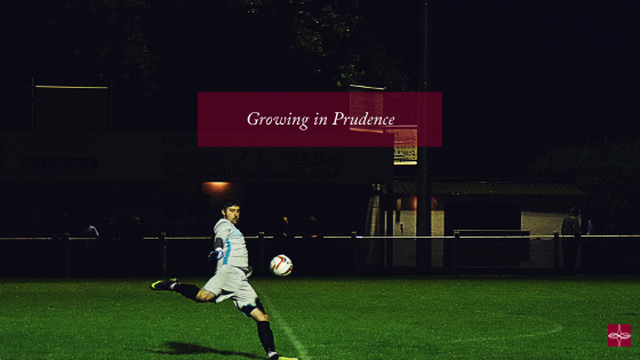
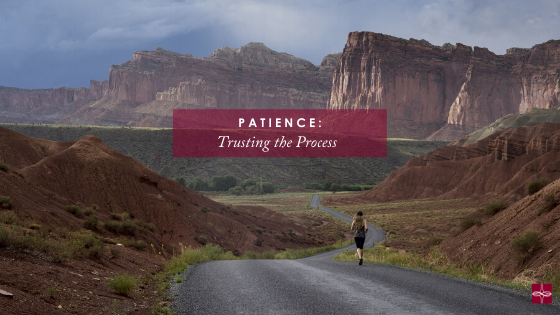

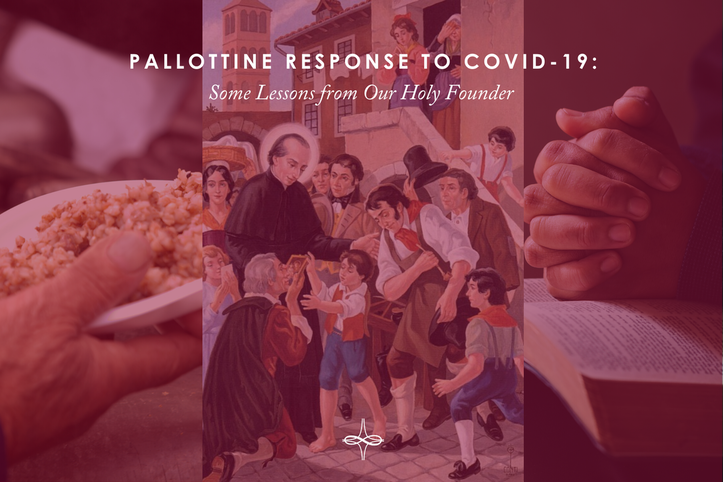
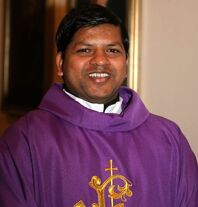
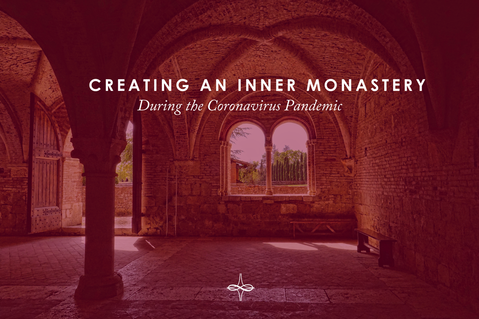



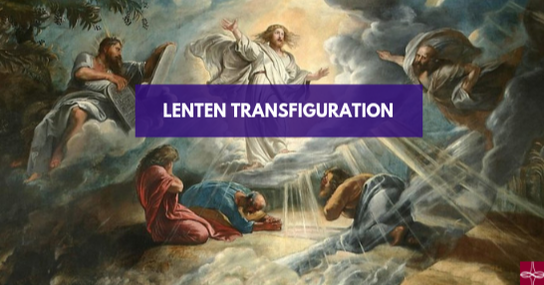

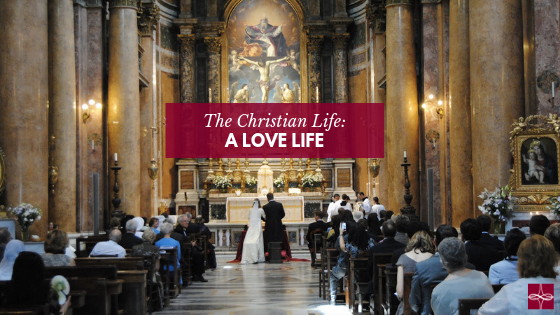

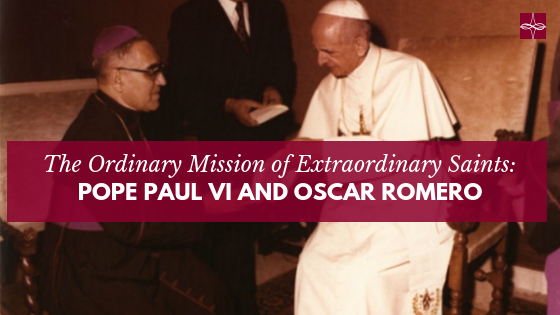

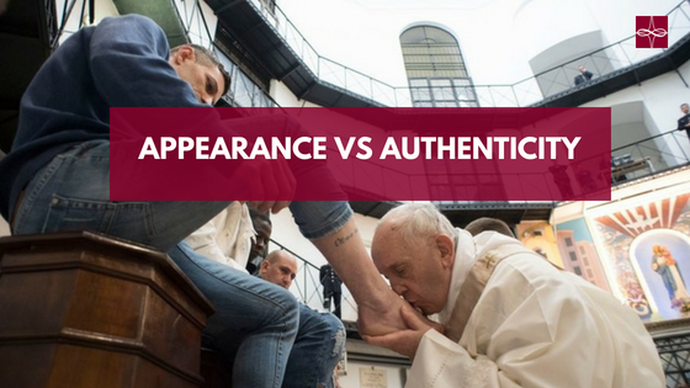

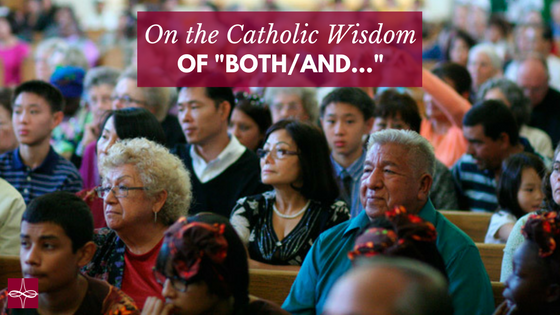
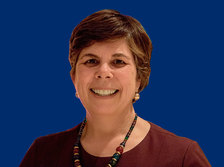

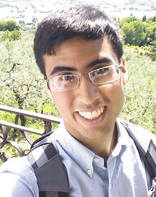
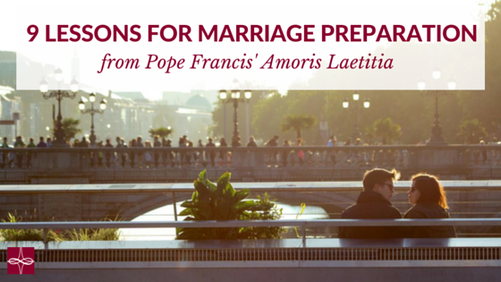





 RSS Feed
RSS Feed